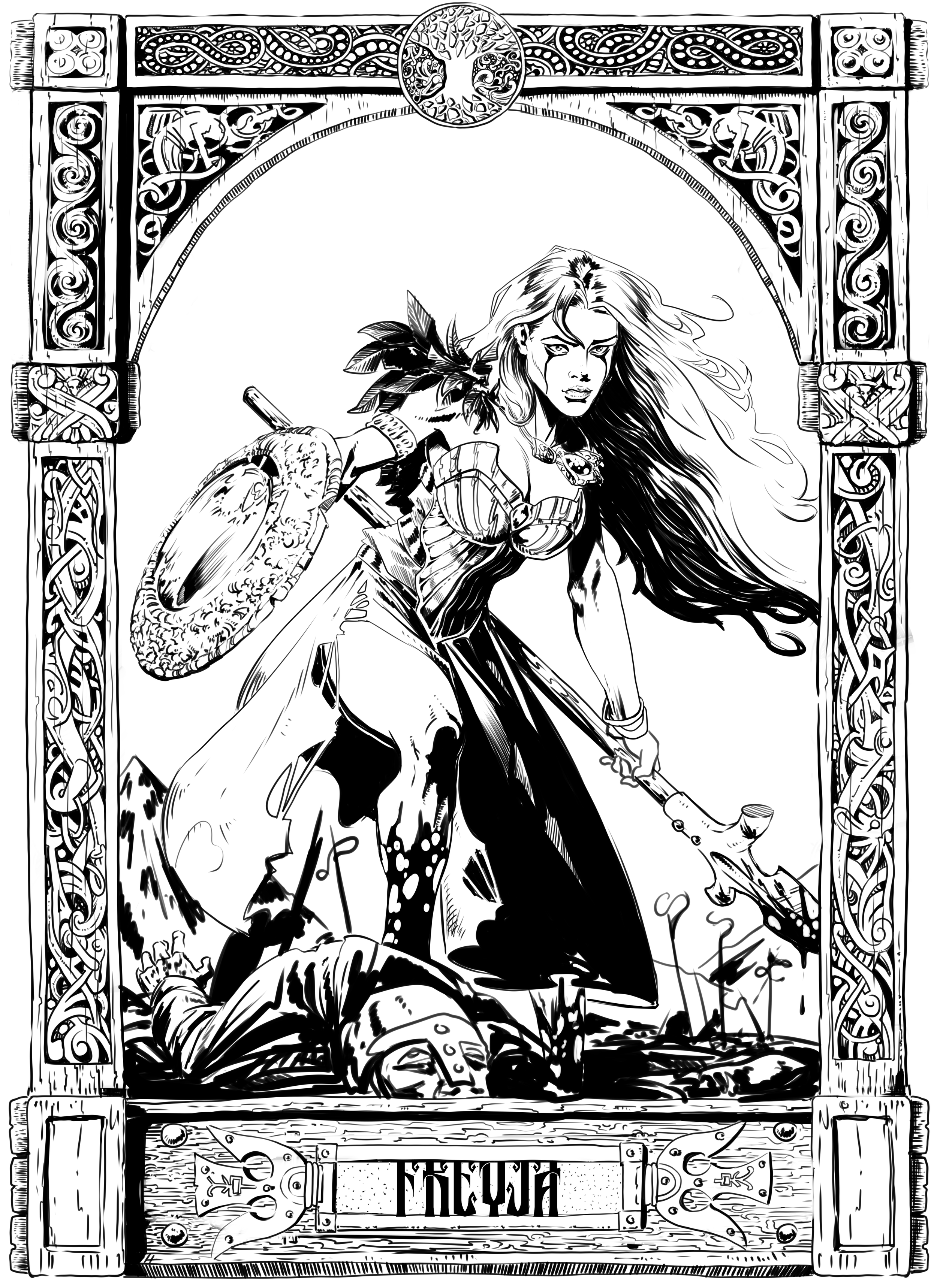Freyja
Freyja
Freyja moves like a whisper behind silk and a roar behind battle cries—a goddess who is many things and never only one. Born of the Vanir and sister to Freyr, she came to Asgard as part of the fragile truce between two divine clans, bringing with her the deep, tangled magic of her people. She is the goddess of love and sex, yes—but also of war, death, and sorcery. She teaches seiðr, the art of fate-weaving, to Odin himself. She claims half the fallen warriors from the battlefield, taking them to her hall Fólkvangr, while the other half go to Valhalla. Where Freyja walks, flowers bloom and ravens turn their heads. She is beauty sharpened to a blade.
She rides a chariot drawn by cats—creatures soft of paw but ruthless in hunger. She weeps tears of gold for her lost lover Óðr, whose absence she feels like a hollow in the ribs. Yet she is not defined by loss. Freyja rules herself with full knowledge of her power, and she wears her desirability as both armor and invitation. She moves easily between worlds, between roles: goddess and warrior, lover and witch, comforter and destroyer. When men speak of her, they often do so clumsily, unable to wrap their minds around a woman who does not bend to their stories. Freyja writes her own.
Visual Description:
Freyja is envisioned as dazzling, with skin the soft glow of moonlit amber and hair cascading like molten gold to her waist. Her eyes are deep blue, rimmed in kohl, with the tired wisdom of someone who has watched centuries pass in a mirror. She wears flowing gowns in rose and red-gold silk, embroidered with falcon feathers and starlit thread, and around her neck rests Brísingamen, a necklace forged by dwarves, pulsing with magic and desire.
Sometimes she wears armor—gilded and delicate but strong as dragon-scale—and a cloak of falcon feathers when she flies in bird-form. Her cats, sleek and massive, pad beside her or draw her chariot with regal disinterest. In art, she is both storm and stillness: standing on a battlefield slick with blood, tears of amber on her cheeks, or reclining in her hall, lovers and warriors at her feet. She is the goddess of things worth fighting for—and the fight itself.
